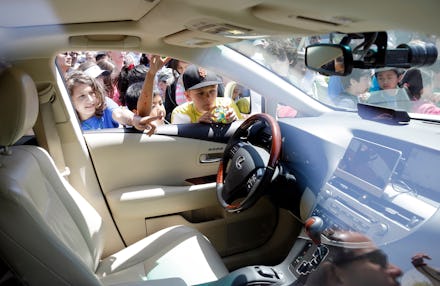Study: Nearly All Cars to Be Self-Driving By 2050

The news: A study by IHS Automotive claims that by 2050 nearly every vehicle on the road will be self-driving.
The study estimates that by 2025 sales of self-driving cars will reach 230,000.By 2035, sales will reach 11.8 million, and there will be nearly 54 million autonomous vehicles on the road.
Self-driving cars aren't slated to hit the road until 2020, but according to this study, once they're on the market, they will eventually come to dominate it.
An important result of the spread of autonomous cars will be an improvement in road safety, as "accident rates will plunge to near zero for self-driving cars," according to Egil Juliussen, one of the analysts behind the report.
Juliussen also predicts a decline in traffic congestion and pollution per car, as autonomous cars "can be programmed to be more efficient in their driving patterns."
Car companies like Ford, Nissan, and Volvo as well as Google are actively developing autonomous car technologies.
But ... Though cars may be evolving, their engines are not. These really cool autonomous automobiles will still use the same old fuel that cars have run on since their birth: gasoline. Don't expect to see electric cars replace gas-powered cars in our lifetime. December's report from the Department of Energy's Energy Information Administration predicts that the vast majority of cars sold in 2040 — 27 years from now — will still be running on gasoline fuel; a total of 78% of light duty vehicles sold that year are likely to run on gas alone.
Even worse: Just 1% of the other 22% of vehicles sales will be plug-in hybrids, 1% will be fully electric, and just 5% will be standard hybrid engines (think Prius). Diesel vehicles will account for 4% of total sales in 2040 and ethanol FFVs will accounts for 11%.
In other words, you'll still need to make a pit stop at a gas station to refuel these self-driving robots.